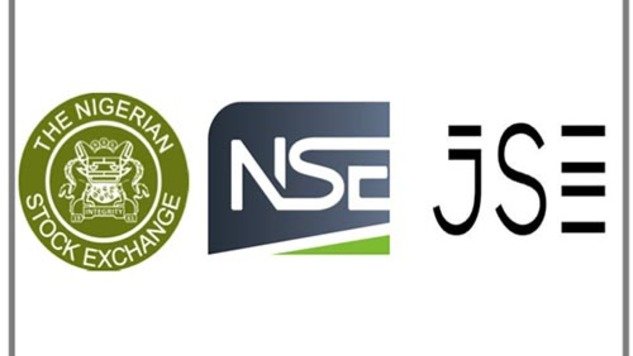Manufacturers and retailers seeking to stay one step ahead in Africa’s complex markets need to move beyond ‘business as usual’ – they simply cannot keep doing the same things and expecting a different result.
This is the latest insight stemming from the 5th Nielsen Africa Prospects Indicator (APi) report which includes a comparative ranking of eight African countries, drawn from multiple datasets, collected across the Macro Economic, Business, Consumer and Retail dimensions.
Nielsen Executive Director Thought Leadership Emerging Markets Ailsa Wingfield comments; “No one size fits all and no total continent, country, city, consumer or channel approach is enough to ensure sustained success in Sub-Saharan Africa.
Similarly, successful brands, advertising and activation in other developing markets do not provide the passport to growth in Africa’s complex markets and challenging climates.”
The latest APi report reveals that Sub-Saharan Africa has uplifted itself from the two-decade economic low reached in 2016, bringing a slight easing of pressure but certainly not a return to the robust growth rates previously experienced.
However, despite the turmoil and heavy constraints; Wingfield stresses that Africa’s ‘heavyweights’ namely Nigeria, Kenya and South Africa, cannot be ignored and remain a long-term priority for any business focused on Sub-Saharan Africa.
Considering this, it’s clear that the sub-continent’s two most significant economies, Nigeria and South Africa, are slowly turning around from recent declines to low levels of growth, however, the consolidated prospects for these two powerhouse economies continue to be subdued.
Of the countries measured in Nielsen’s 5th Africa Prospects report, South Africa slips two positions to sixth place and Nigeria remains in eighth place.
South African consumers have expressed declining sentiment regarding their job prospects, personal finances and time to buy.
With higher average GDP per capita – double that of Nigerians and Angolans and triple that of Kenyans – bigger in-store spend and an openness to new, innovative products, South Africa presents the strongest consumer prospects in SSA.
However, the reality is that a cautionary consumer mindset has led to more risk averse spending behaviour and a heightened focus on saving, especially in the areas of out of home eating, entertainment and fashion, followed by an acute awareness of price for consumer-packaged goods. To counter this, businesses have been drawn into more promotional activities, eroding brand equity and margins.
Kenya relinquishes top position due to fading macro-economic indicators and a declining business outlook. Economic growth slowed to 4.7% in the first quarter of 2017 brought about by drought and the credit slowdown.
Rapidly rising inflation recently drove food prices to five-year highs, which has plagued consumers and retail trading conditions. Consumers are less confident about their personal finances; their spare cash is limited, and their mindset remains cautionary with them opting to save rather than spend.
Cote d’Ivoire leads the APi overall ranking with strong macro-economic and retail prospects, but the country is dealing with deteriorating political stability and declining cocoa prices, which could lead to an economic deficit and pressure on household income, amplifying the already weaker consumer prospects.
Despite the country displaying strong indicators for growth, consumer prospects remain low. This is in part due to product fulfilment issues, with manufacturers failing to meet Ivorian consumers’ needs as they relate to a range of factors including: convenience, tradition, taste, ease of use, portability, scarcity and accessibility.
Cameroon has risen to fourth position, is its highest rank to date. With a diversified natural resource base, rapid urbanisation and GDP per capita on par with Kenya, and higher than Uganda and Ethiopia, it is easy to understand its stronger consumer and retail prospects.
These are, however, offset by weaker macro-economic and business prospects. The economy is vulnerable to external impacts due to a reliance on commodities, and this, coupled with low investment in critical infrastructure, frequent power outages, and weak governance, has resulted in elevated costs of doing business.
Cameroon has also been identified as one of the most challenging countries in the world to start a new business, limiting potential investors and preventing the economy from growing at its full potential.
Ghana maintains fifth position on the APi, but this masks some of the ongoing improvement in the macro-economic, consumer and retail dynamics. It has also been rated as the best business prospect for successive periods. Economic advances in 2017, with growth rising to 6.6%, is spurred on by progress in the oil and non-oil sectors.
Food inflation continues to decelerate easing the pressure on consumer wallets, resulting in an increasing number of Ghanaians spending more in store, more willing to try new things and positively influencing the previously weaker retail outlook.
Overall, the APi report shows that Africa continues to offer one of the greatest gifts of untapped growth, but requires bold strategies.
Those invested or investing in Africa therefore need to reassess and implement in a more purposeful, precise and persistent manner in pursuit of consumer needs.
Wingfield comments; “Africa offers marketers one of the final destinations to develop and execute product, marketing and retail solutions from a clean slate perspective, which are differentiated, generate demand and deliver value yet there still seems to be a vacuum within these areas.
“On the plus side this points to significant potential for innovation and growth – what is required now is a steady investment by manufacturers and retailers into making these untapped opportunities work for them.”



